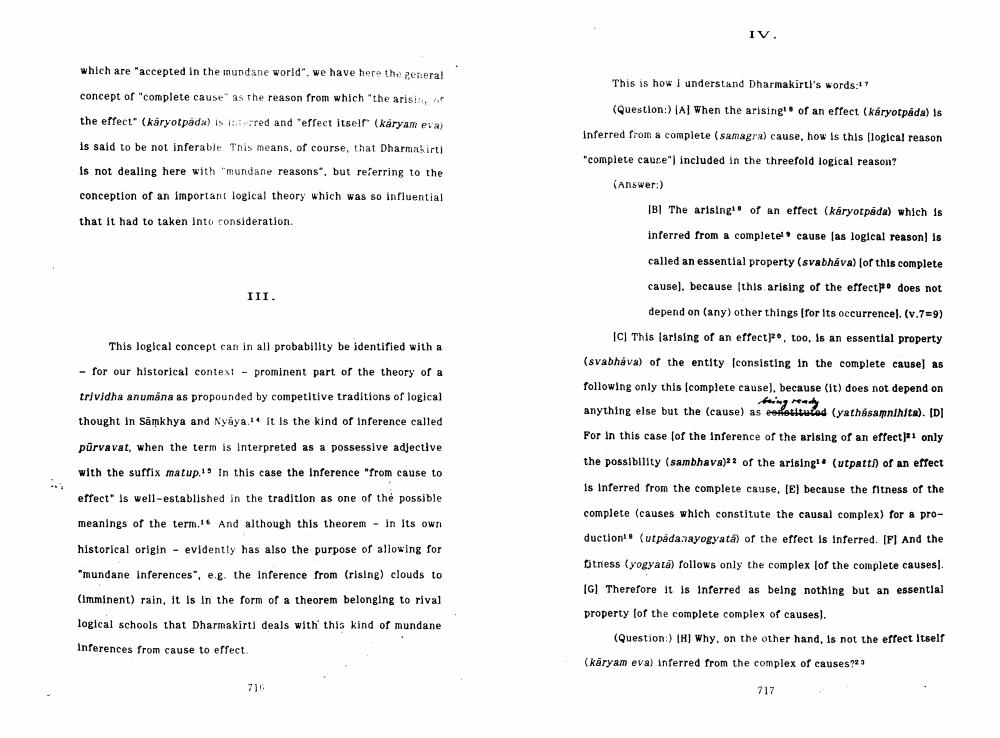________________
IV.
which are "accepted in the inundane world". we have here the general concept of complete cause as the reason from which the arisin
This is how I understand Dharmakirti's words
the effect" (karyotpada) is i
rred and effect itselr (karyam eva)
(Question:) IA] When the arising
of an effect (áryotpada) is
is said to be not inferable. This means, of course, that Dharmakirti
Inferred from a complete (Samagra) cause, how is this [logical reason
is not dealing here with "mundane reasons, but referring to the
conception of an important logical theory which was so influential
"complete cauce") included in the threefold logical reason? (Answer:)
IB The arising of an effect (karyotpada) which is inferred from a completelo cause (as logical reason) is
that it had to taken into consideration.
III.
This logical concept can in all probability be identified with a
- for our historical context - prominent part of the theory of a
trividha anumana as propounded by competitive traditions of logical
called an essential property (svabhava) (of this complete cause), because this arising of the effect does not
depend on (any) other things (for its occurrence. (v.79) IC) This arising of an effects, too. Is an essential property (svabhava) of the entity fconsisting in the complete causel as following only this (complete cause), because (t) does not depend on anything else but the (cause) as eodositulot (yathasamnihita). IDI Por in this case for the inference of the arising of an effect" only the possibility (sambhava)az of the arising (utpatt of an effect is inferred from the complete cause, (E) because the fitness of the complete (causes which constitute the causal complex) for a pro
thought In Samkhya and Nyaya.
It is the kind of inference called
purvavat, when the term is Interpreted as a possessive adjective with the surfix matup.!! In this case the Inference from cause to effect" is well-established in the tradition as one of the possible meanings of the term.. And although this theorem - in its own historical origin - evidently has also the purpose of allowing for 'mundane Inferences, eg the inference from (rising) clouds to (Imminent) rain, it is in the form of a theorem belonging to rival logical schools that Dharmakirti deals with this kind of mundane Inferences from cause to effect.
duction
(ut padanayogyatá) of the effect is inferred. [F] And the
Otness (yogyatá) follows only the complex lof the complete causes]. [G] Therefore it is inferred as being nothing but an essential property of the complete complex of causes).
(Question:) (H) Why, on the other hand, is not the effect itself (karyam eva) inferred from the complex of causes a 3
717




